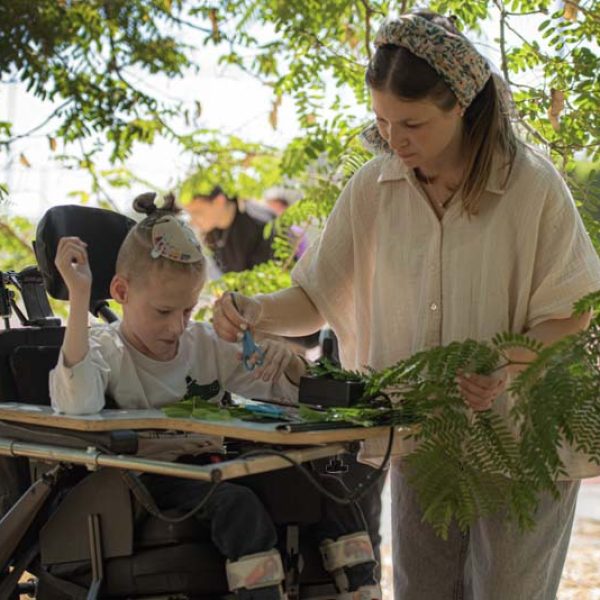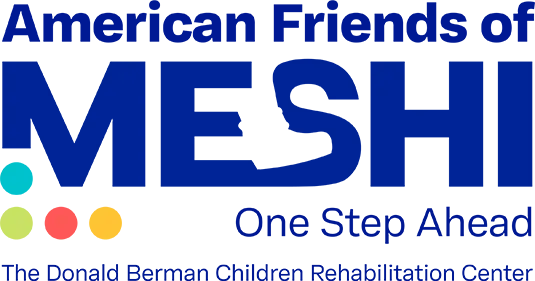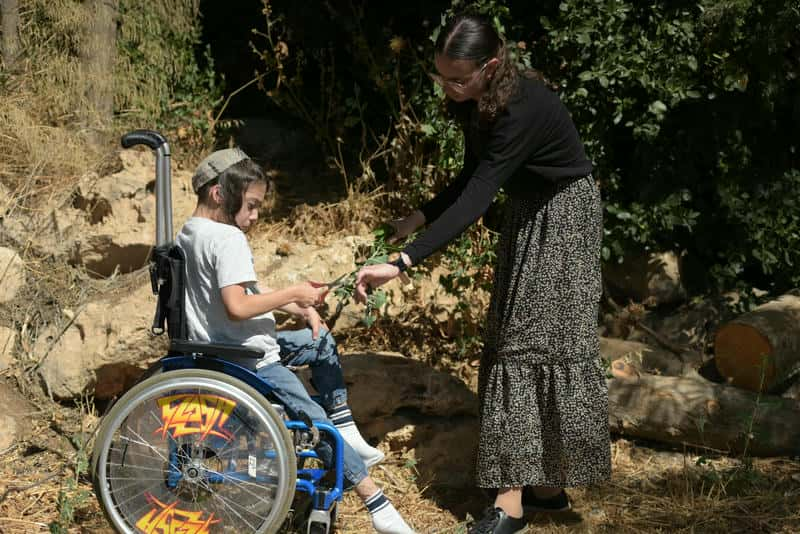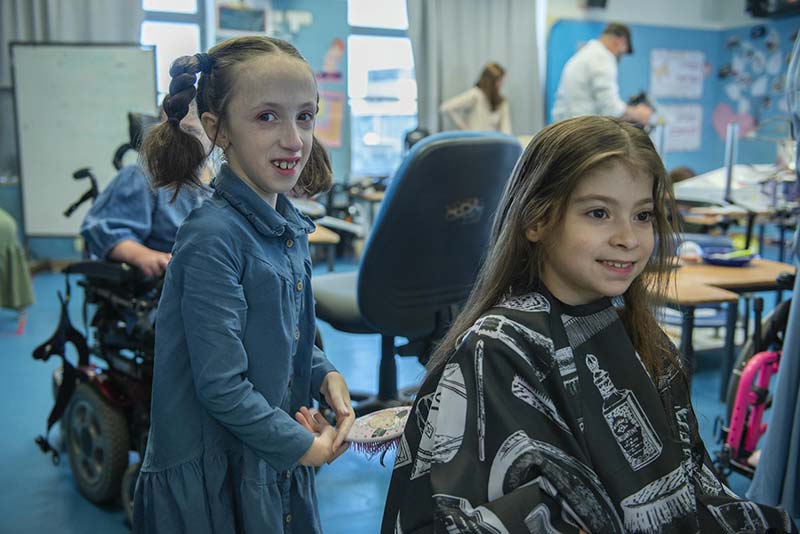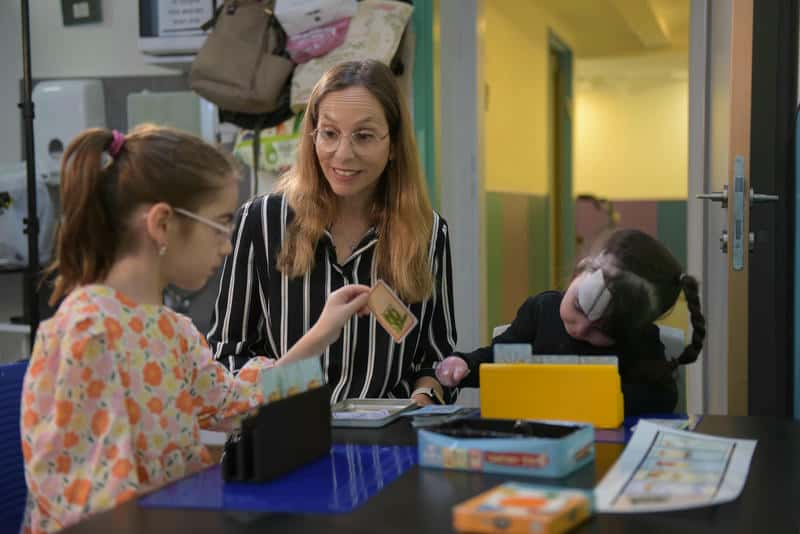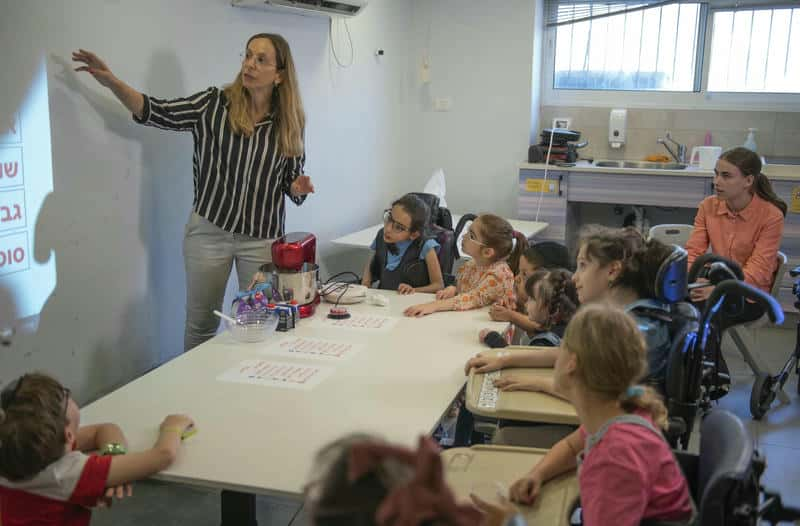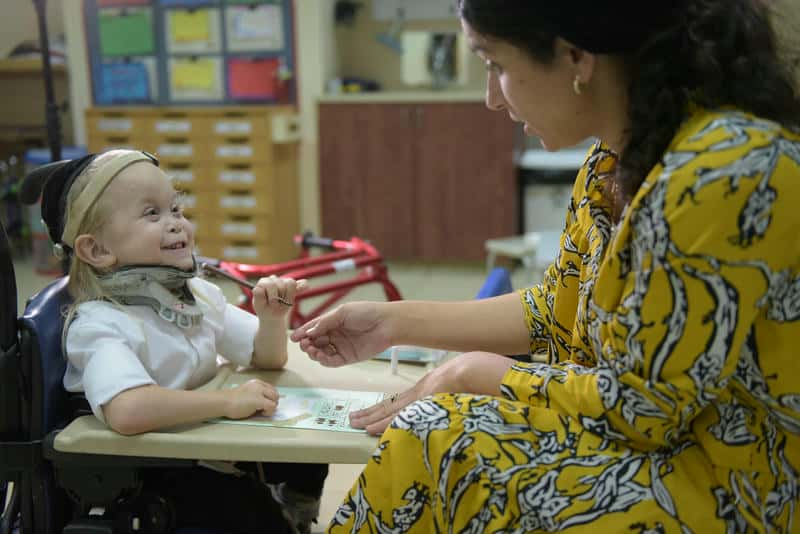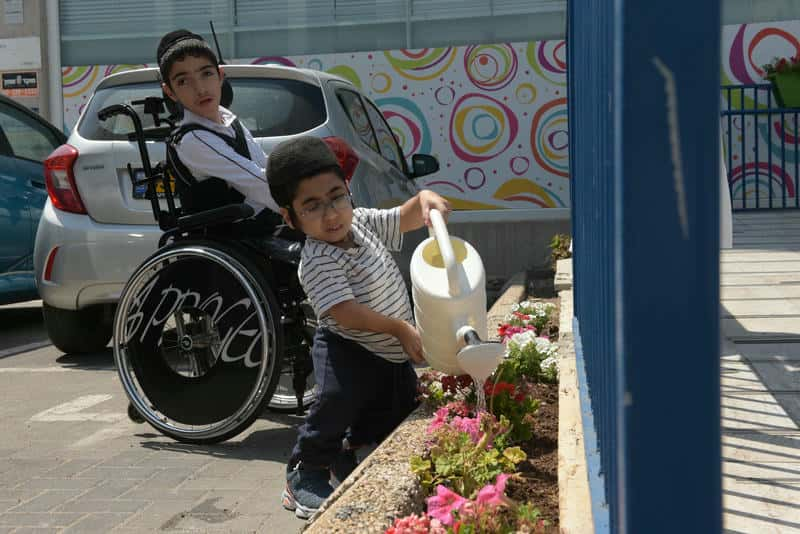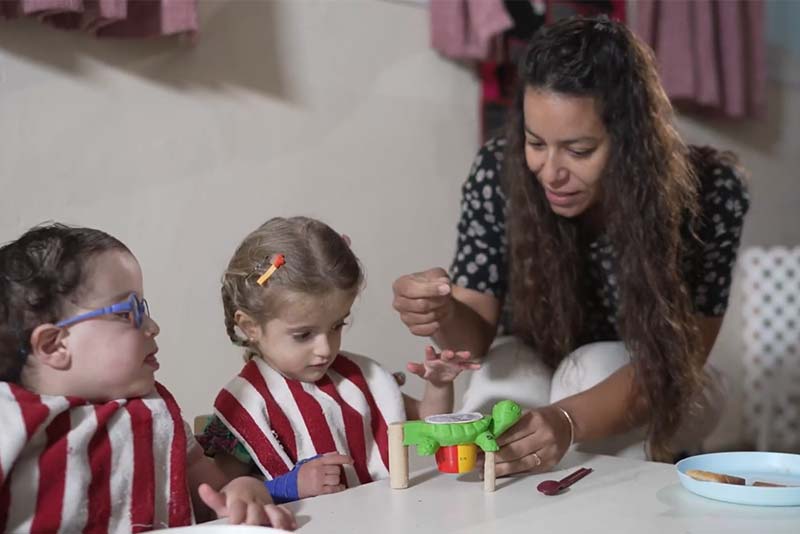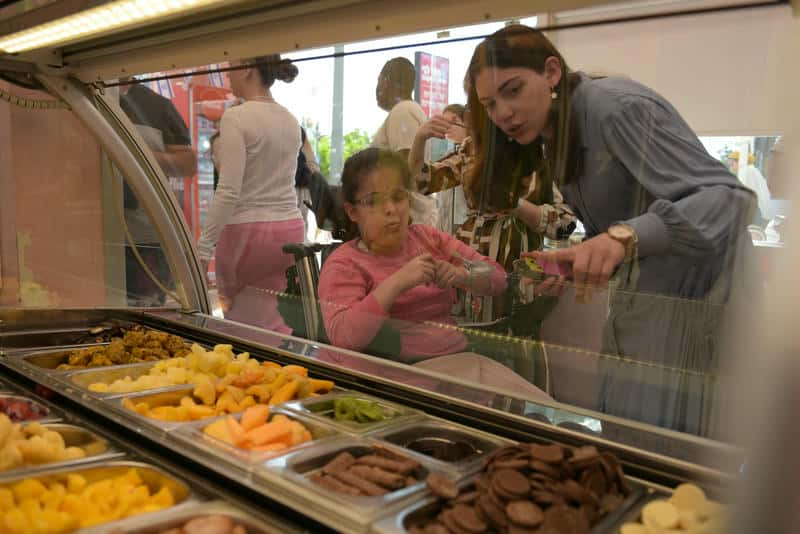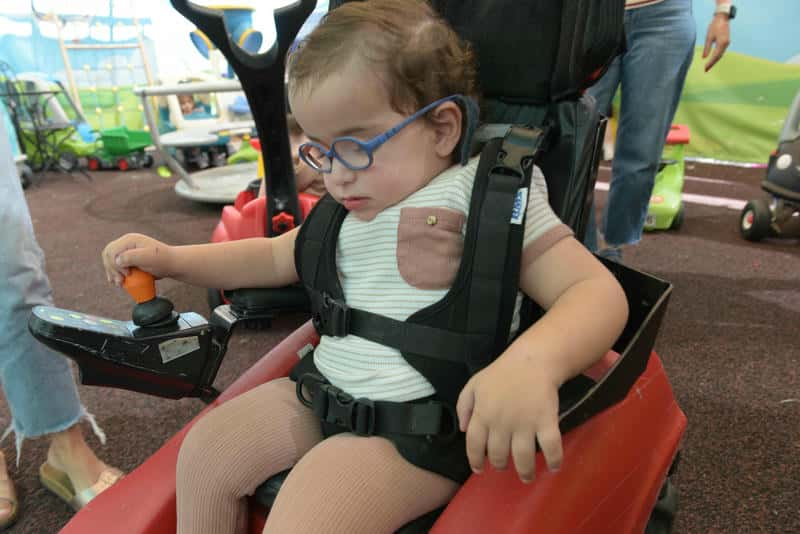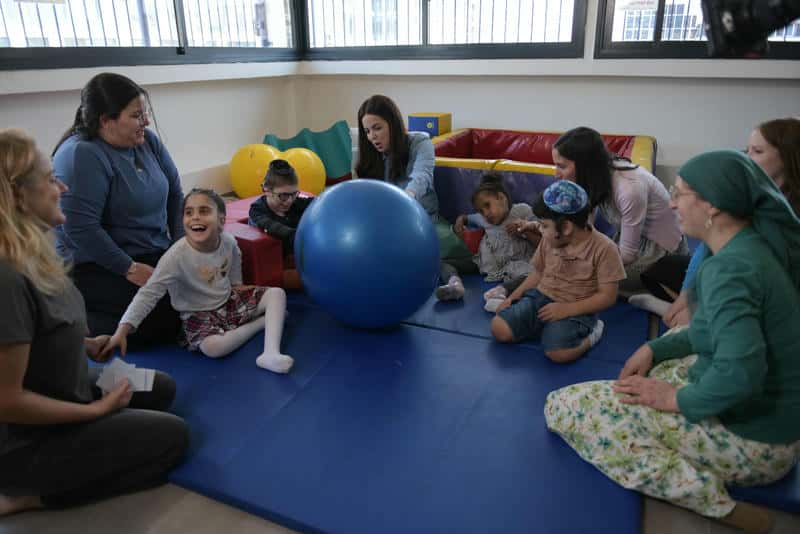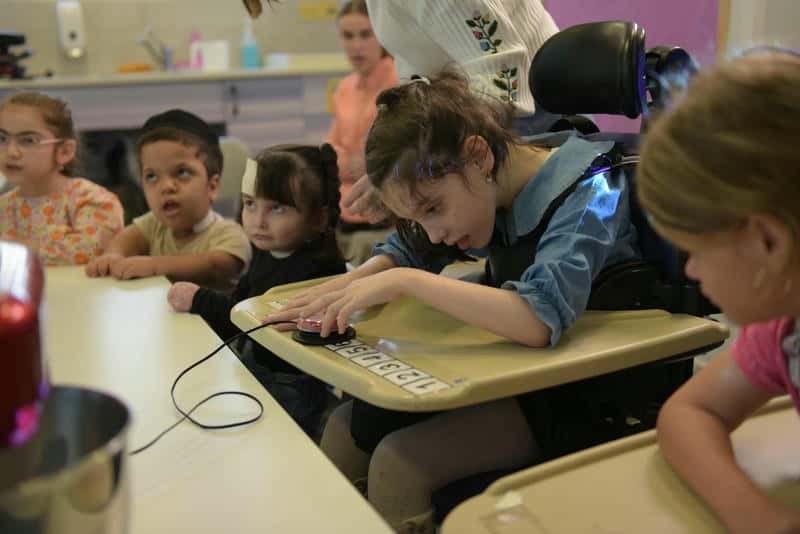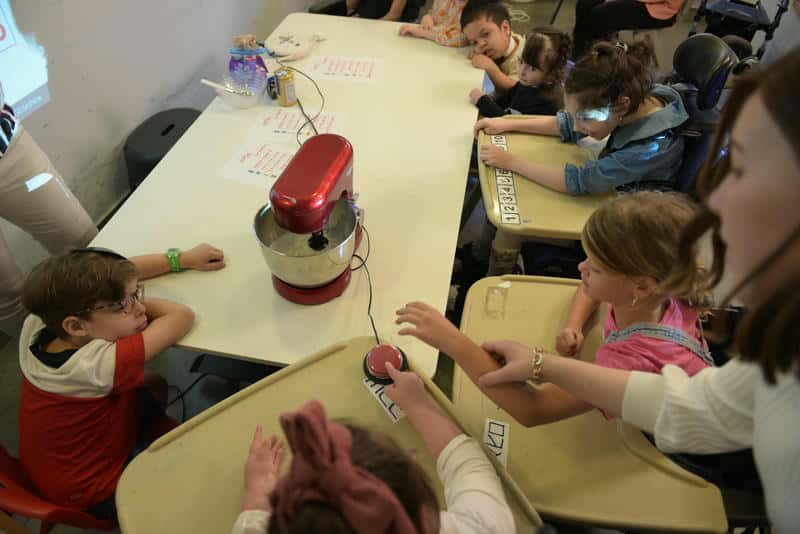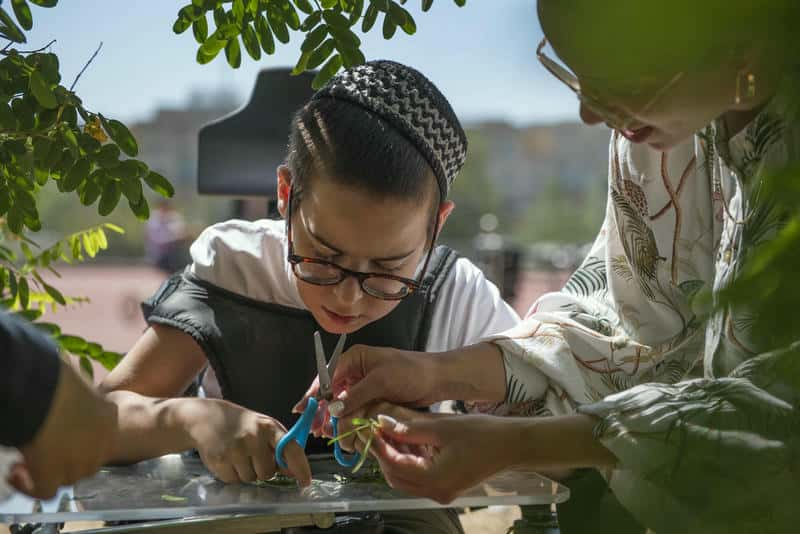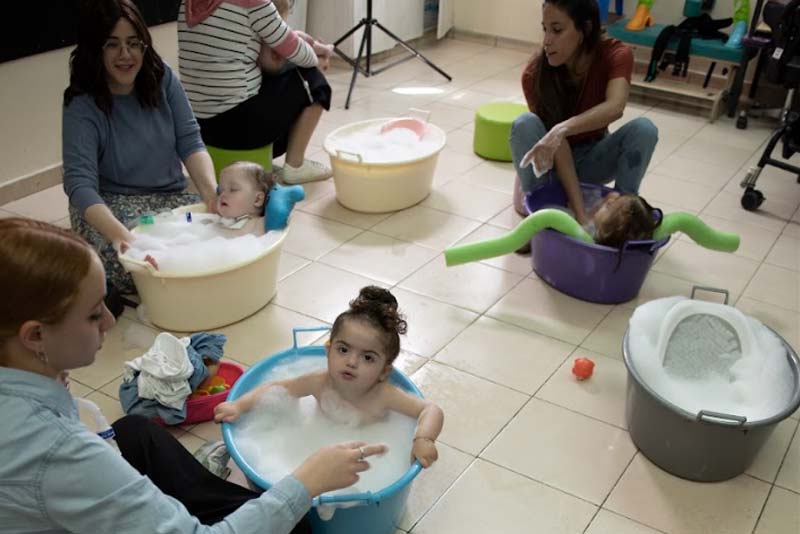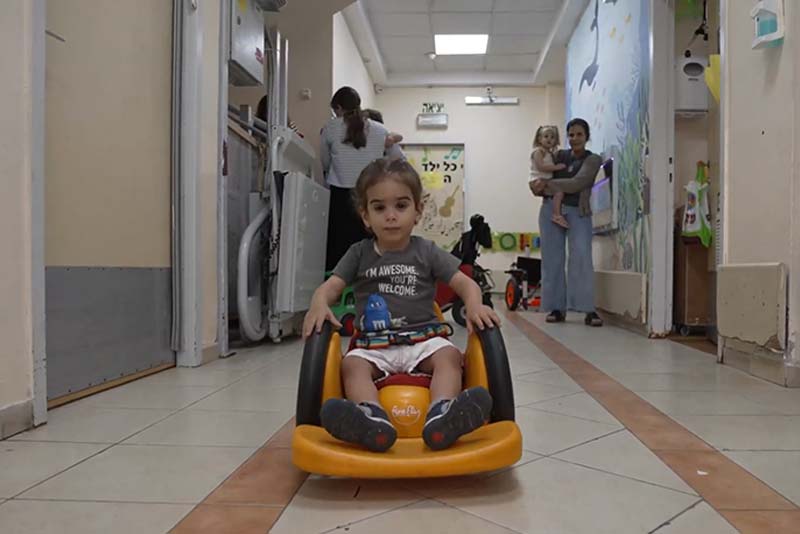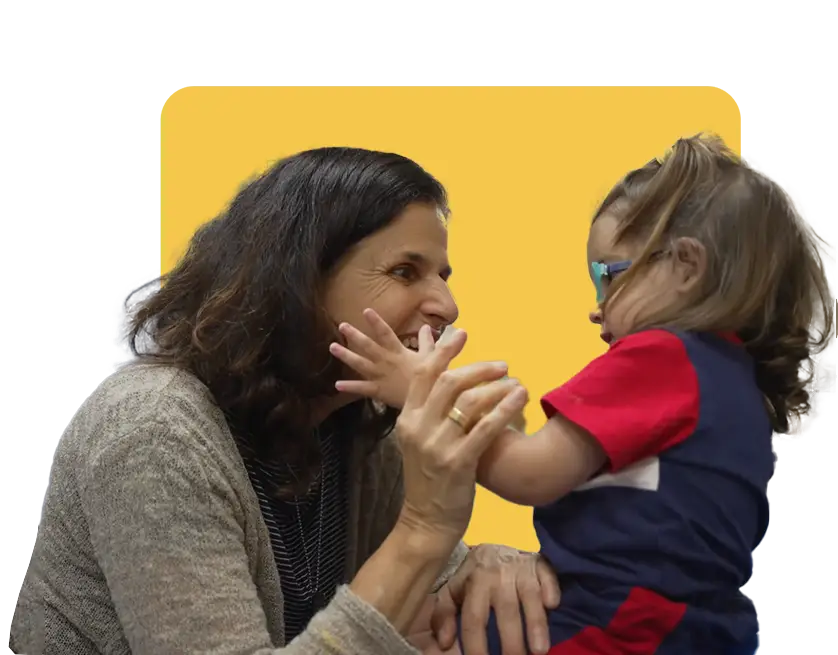
דף הבית 〱 Areas of Activity 〱 Occupational Therapy
Occupational Therapy
Within Meshi’s holistic circle of care, OT teams advance the child’s independence capacity in Activities of Daily Living (ADLs)—enhancing their autonomy and meaningful participation across life domains.
Meshi’s Occupational Therapy (OT) team approaches intervention through a multidimensional lens, assessing the dynamic interaction between each child and their environment.
The team specializes in adapting physical and social settings to reduce barriers, leverage facilitators and open new opportunities. Aiming to maximize participation, these adaptations are tailored to each child’s unique abilities and needs—enabling them to engage in their own way, with reasonable effort, and in line with their self-determined preferences.
To that aim, Meshi’s OT team nurtures each child’s sense of agency and expands their capacity for autonomous choices. Children are exposed to diverse options for play, daily activities and participation, including uniquely developed experiential games and group programs—designed to build motor, personal, and interpersonal skills through meaningful, engaging experiences.
Meshi’s OT programs aim to reduce the gap between the child's functional capacity and actual performance, by:
- Fostering autonomy, self-determination, and a sense of personal control
- Providing consistent exposure to diverse interests and participation opportunities
- Adapting the environment to reduce barriers and enhance natural facilitators
- Developing customized assistive devices and technological solutions
Structure & Practice
Each Meshi center has a dedicated Occupational Therapy team, licensed by the Ministry of Health and led by a certified Head of OT—who sets intervention framework and oversees interdisciplinary collaborations as part of the Center’s management. Each class has an assigned therapist who provides individual and group sessions, as well as ongoing support for families and staff.
Recognizing environmental intervention as key to promoting participation, Meshi’s OT teams design adaptive solutions across all life domains. Special emphasis is placed on safe and comfortable seating, and on early, as-independent-as-possible mobility — supporting optimal engagement in daily activities. Solutions are tailored to each child’s developmental profile, including personalized tools and add-ons.
Heads of Occupational Therapy
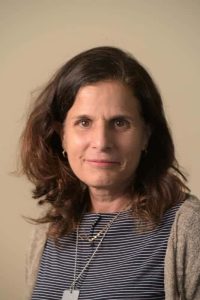
Dikla Gol Burstein
Lead Occupational Therapist, Early Development Center

Yael Greenzeig
Lead Occupational Therapist, Jerusalem School

Shirley Penso
Lead Occupational Therapist, Bnei Brak School

Shifra Eisenbach
Occupation Guide, Binat Danielle Yeshivah
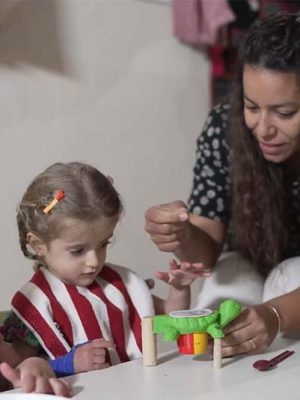
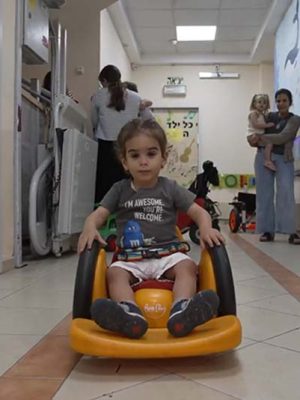
Innovative Approaches
Guided by the Meshi Approach, the Occupational Therapy teams embrace progressive therapeutic methodologies rooted in the WHO’s ICF multidimensional framework.
This model views environmental intervention as a key facilitator of participation and functioning—favoring adapted, alternative performance strategies over expectations of “typical” or sustained peak performance.
It challenges the notion of full independence as an absolute ideal, while recognizing the value of interdependence. Accordingly, the focus shifts to fostering strong personal autonomy as a foundation for promoting independence—wherever meaningful and feasible—through the child’s own will and cooperation.
The team specializes in developing personalized assistive solutions and places significant emphasis on expanding choice and opportunity. They design innovative programs that make a broad spectrum of meaningful activities accessible—from inherently adaptive fields like Paralympic sports to areas traditionally considered “inaccessible”, such as camping.
Innovation at Meshi
3D Solutions for Everyday Functioning
Meshi’s OT team has built extensive expertise in developing personalized assistive tools, particularly through advanced technologies.
For over a decade, the team has led the 3D department of “Ivzurit”– Meshi’s Custom Assistive Solutions Hub—creating customized, often novel solutions for functional challenges across all areas of life. These include tools for hands-on learning, play, and emotional preparation (e.g rehabilitation accessories for dolls), ADL aids (stands, grips), and add-ons for seating, mobility, and communication devices (armrests, switches, and joysticks).
In addition, the team runs a child-centered 3D program in which students participate in planning, designing , and printing their own assistive tools. This process is fully tailored to each child’s abilities and interests, and is guided by an occupational therapist and a tech facilitator. This initiative complements broader innovation tracks at Meshi, including AI and robotics.
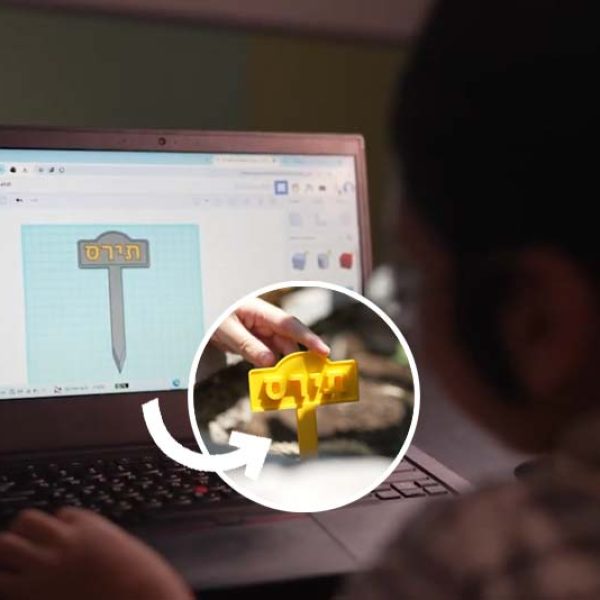
Boccia: A Team Paralympic Sport
Meshi offers diverse experiential programs that promote functional development through enjoyment and social inclusion. One such initiative is the Boccia group, led by an occupational therapist.
Boccia is a strategic ball game and official Paralympic sport played in teams of one to three. Players aim to throw or propel their ball—by hand, foot, or assistive device—as close as possible to a white target ball (“jack”), or to displace opponent’s ball. Teams score points based on proximity to the jack, and the highest total wins.
The program enables Meshi’s children to participate in a dynamic, competitive sport recognized worldwide. It offers relatable role models—athletes with diverse disabilities—and fosters social belonging, confidence, and the development of both motor and interpersonal skills. Similar opportunities are offered at Meshi through uniquely designed group programs such as Arcana music, the forest group, and robotics.
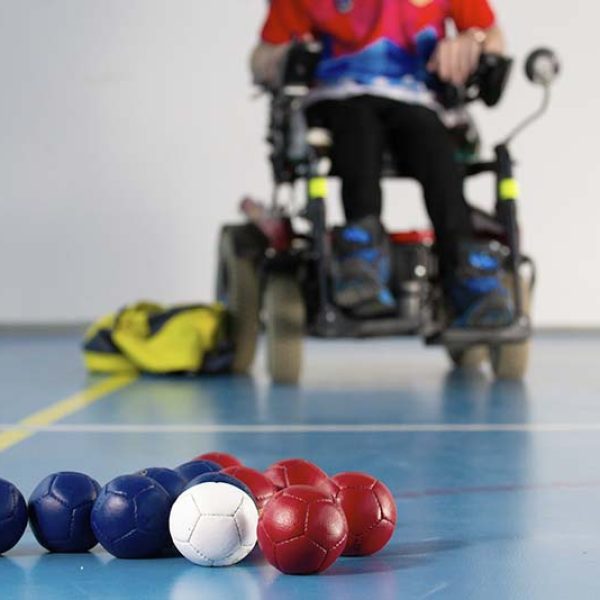
Forest Group: Experiential Learning in Nature
Children with disabilities often face environmental, motor, and health-related barriers that limit their access to enrichment activities, especially outdoors. Meshi actively works to bridge this gap through uniquely designed programs such as the Forest Group—a joint initiative of the education and OT teams.
The program focuses on camping, nature, and leisure activities —offering children exciting, and often unfamiliar, opportunities for exploration and hands-on learning. Participants actively build and equip their outdoor learning compound, and develop life skills while tackling real-time challenges of accessibility and adaptation in varied terrain. This fosters personal and social growth in areas such as problem-solving, creative thinking, responsibility, teamwork, environmental awareness, and safe behavior in nature.
At Meshi, access to meaningful activities is advanced in many ways—from adapting programs like Robotics, to systematic integration of AAC, and incorporating innovative technologies into play and learning.
